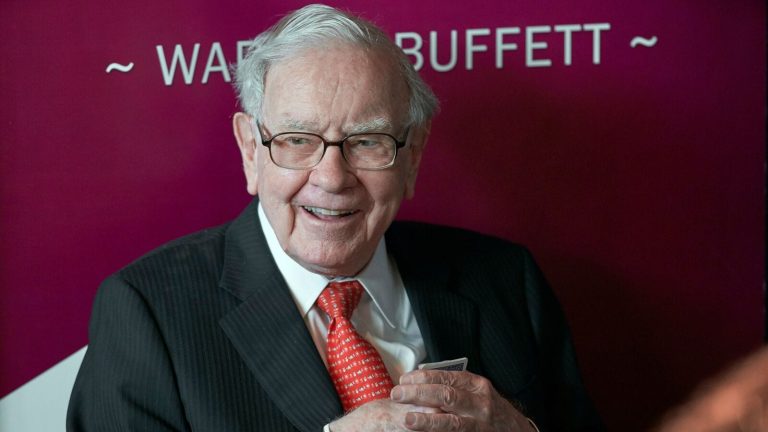Berkshire Hathaway investors are eager for this Saturday’s annual meeting in Omaha, Neb., because it’s the only time each year that they get to hear CEO Warren Buffett hold forth at length about the company.
It also could be one of the last meetings for the 94-year-old Buffett, who told shareholders in the company’s annual letter earlier this year that “it won’t be long before” a successor takes over as CEO, likely Greg Abel, a Berkshire executive.
As many as 30,000 investors will journey to Omaha for what Buffett calls a “Woodstock for Capitalists” to soak up the scene and enjoy Buffett’s financial wisdom, humor, and life lessons. Berkshire investors should be in good spirits, with the stock up over 17% this year and near its recent record, while the S&P 500 is down 5%.
Buffett will answer questions for 4½ hours, starting at 9 a.m. ET and continuing until 2 p.m. with a half-hour break in the middle.
He will be accompanied on stage by Berkshire Vice Chairmen Abel, 62, the head of Berkshire’s non-insurance operations, and Ajit Jain. Jain, 73, who oversees the company’s insurance businesses, will be on stage for about half the time. Both have appeared at prior meetings and impressed investors with their command of their domains.
In the annual meeting brochure, Buffett noted that CNBC anchor Becky Quick will be asking written questions submitted by shareholders, with audience members also able to query him.
“We know you and Becky will pick some tough ones and that’s the way we like it,” he wrote. Buffett added that he wouldn’t address politics.
Barron’s offered 10 questions for Buffett ahead of last year’s meeting, including whether he would consider selling part of Berkshire’s big Apple stake. Here are 10 for this year’s conclave.
1) Many investors thought that Berkshire’s Apple equity stake would be a “forever” holding like Coca-Cola or American Express. Why did Berkshire sell two-thirds of its huge Apple stake last year?
2) Your likely successor, Abel, is 62, and Jain is 73. Who are the key people in the next generation of leadership at Berkshire?
3) What role will Todd Combs and Ted Weschler likely play in managing the $300 billion equity portfolio after you’re no longer CEO, and what has their investment performance been since joining Berkshire over a decade ago?
4) Berkshire hasn’t bought back its shares since May 2024. After the stock’s run-up this year, do you think it’s overvalued?
5) Given Berkshire’s huge cash position of over $300 billion and no buybacks, would you consider paying a cash dividend, and should there be a dividend after you’re gone?
6) The Burlington Northern Santa Fe unit has some of the lowest profit margins among major North American railroads. Can that be fixed?
7) In your annual shareholder letter, you lauded the “spectacular” improvement at Berkshire’s Geico unit under the leadership of Combs. But it trails fast-growing rival Progressive in using technology, including real-time driving to price policies. Is Geico at a permanent disadvantage relative to Progressive?
8) Occidental Petroleum President and CEO Vicki Hollub said recently that it would be “dream come true” if Berkshire bought the entire company. Will you reconsider your previously stated unwillingness to buy the rest of Occidental?
9) Berkshire paid the estate of Walter Scott a much lower price for its stake in Berkshire Hathaway Energy last year than it did for Greg Abel’s interest in 2022. Why? Is BHE worth less now?
10) What is your largest personal investment outside of Berkshire stock?
Write to Andrew Bary at andrew.bary@barrons.com


